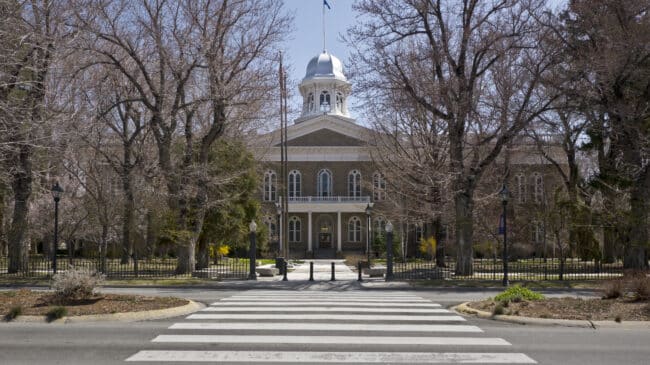A version of this written comment was submitted to the Nevada Assembly Revenue Committee on March 27, 2025.
Complicated and punitive tax rates on legal marijuana goods create a tax-induced price distortion that favors illicit goods. Legal cannabis goods compete with both illicit goods for which supply chains have been established over decades and with intoxicating hemp-derived cannabinoids. These substitute goods do not face the same regulatory and tax burdens as state-licensed marijuana. Large-scale surveys show that marijuana consumers prefer to buy regulated marijuana goods when the price is comparable, but they will not pay more for these goods than they would for illicit alternatives.
Jurisdictions that assess taxes at multiple levels of the supply chain cause taxes to “pyramid” or accumulate within the price of the underlying good in a way that is non-transparent to consumers. This approach also complicates tax compliance and requires both taxpayers and tax administrators to devote greater time to preparing and reviewing tax filings.
A particular complication with ad valorem wholesale marijuana taxes emerges when a cultivator or manufacturer transfers inventory to a retail dispensary under common ownership. The owners are incentivized to transfer the inventory at a minimal declared price in order to evade the wholesale tax. To counter this possibility, regulators in Colorado and Nevada conduct quarterly market surveys among licensees to determine a declared “market price” for marijuana goods. They then assess the current 15% tax rate against the declared market price per pound of marijuana transferred to determine a cultivator’s tax liability. This approach obscures the fact that marijuana is produced at different levels of quality and marketability. Low-quality marijuana that would fetch a lower market price is effectively taxed at higher rates, while high-quality marijuana is effectively taxed at lower rates.
Nearly all states with regulated marijuana markets do not assess an ad valorem wholesale tax, a practice unique to Colorado, Illinois, and Nevada. Alaska and New Jersey assess wholesale taxes at a fixed rate per pound of marijuana produced, but neither of those states imposes a retail excise tax.
Reason Foundation has always recommended that states with regulated marijuana markets levy a single excise tax at the point of retail sale. Assembly Bill 307 proposes to do this by repealing the existing wholesale tax. However, this change would be coupled with an increase in the retail excise tax rate from 10% to 14.25%. While some states exempt cannabis goods from the general sales tax, Nevada does not. Nevada also authorizes local governments to assess an additional 3% retail excise tax. As a result, the total retail tax on legal marijuana goods could amount to 25.5%, which would be higher than in most states with legal markets.
The Cannabis Compliance Board has submitted a fiscal note estimating that these tax changes would yield an additional $153 million in tax revenue per biennia. Assembly Bill 307 would be improved if these tax changes were designed to be revenue-neutral so as to minimize the distortive effect of taxes on legal marijuana goods. Nevada lawmakers and regulators have rightly voiced concern over the continued presence of illicit marijuana markets. The best means of displacing these illicit goods is establishing a tax and regulatory environment that allows legal goods to compete on price.

